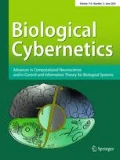Abstract.
Optimization of performance in collective systems often requires altruism. The emergence and stabilization of altruistic behaviors are difficult to achieve because the agents incur a cost when behaving altruistically. In this paper, we propose a biologically inspired strategy to learn stable altruistic behaviors in artificial multi-agent systems, namely reciprocal altruism. This strategy in conjunction with learning capabilities make altruistic agents cooperate only between themselves, thus preventing their exploitation by selfish agents, if future benefits are greater than the current cost of altruistic acts. Our multi-agent system is made up of agents with a behavior-based architecture. Agents learn the most suitable cooperative strategy for different environments by means of a reinforcement learning algorithm. Each agent receives a reinforcement signal that only measures its individual performance. Simulation results show how the multi-agent system learns stable altruistic behaviors, so achieving optimal (or near-to-optimal) performances in unknown and changing environments.
Similar content being viewed by others
Author information
Authors and Affiliations
Additional information
Received: 1 August 1997 / Accepted in revised form: 28 November 1997
Rights and permissions
About this article
Cite this article
Zamora, J., Millán, J. & Murciano, A. Learning and stabilization of altruistic behaviors in multi-agent systems by reciprocity. Biol Cybern 78, 197–205 (1998). https://doi.org/10.1007/s004220050426
Issue Date:
DOI: https://doi.org/10.1007/s004220050426




